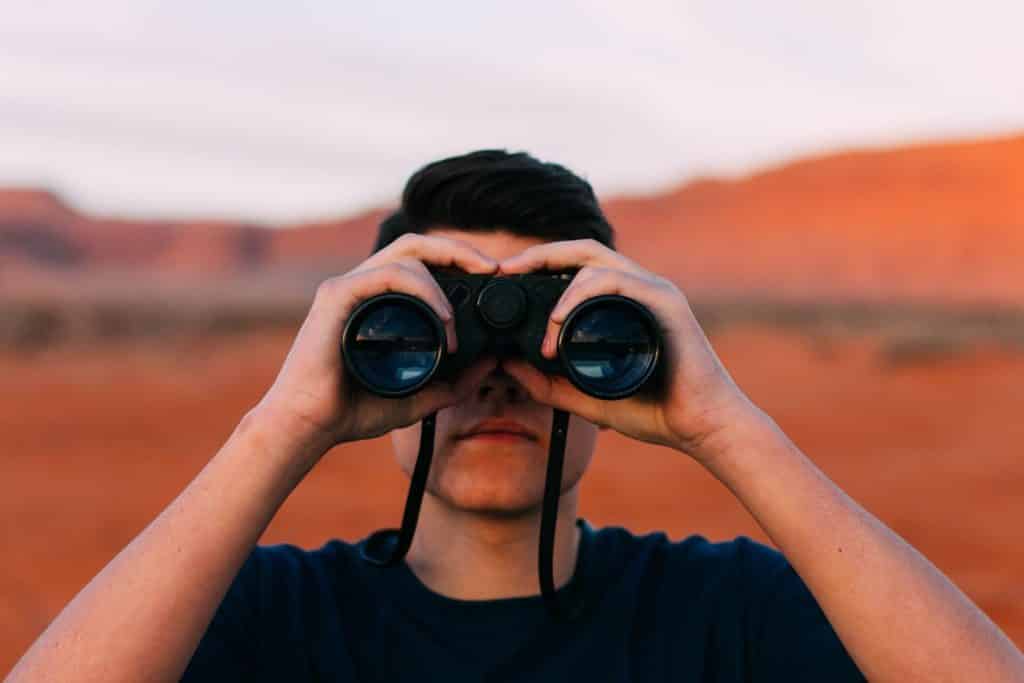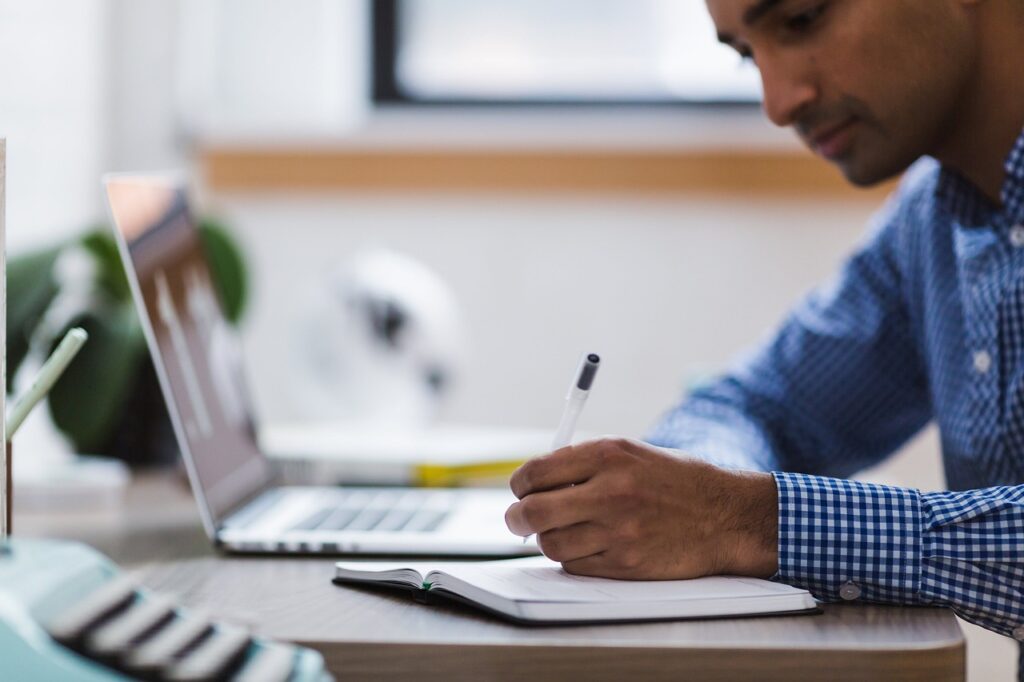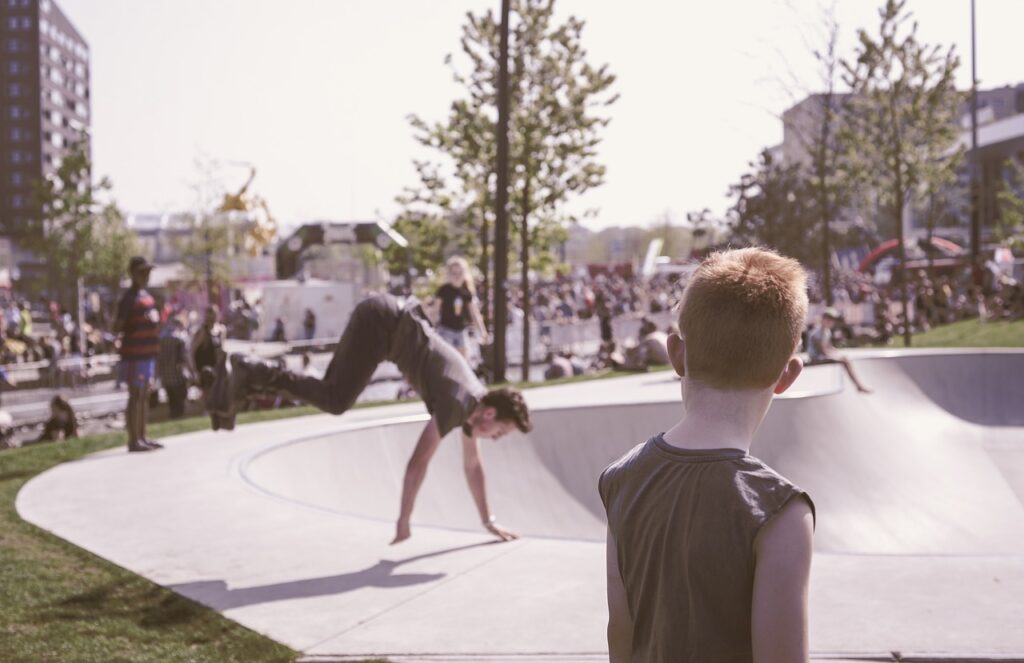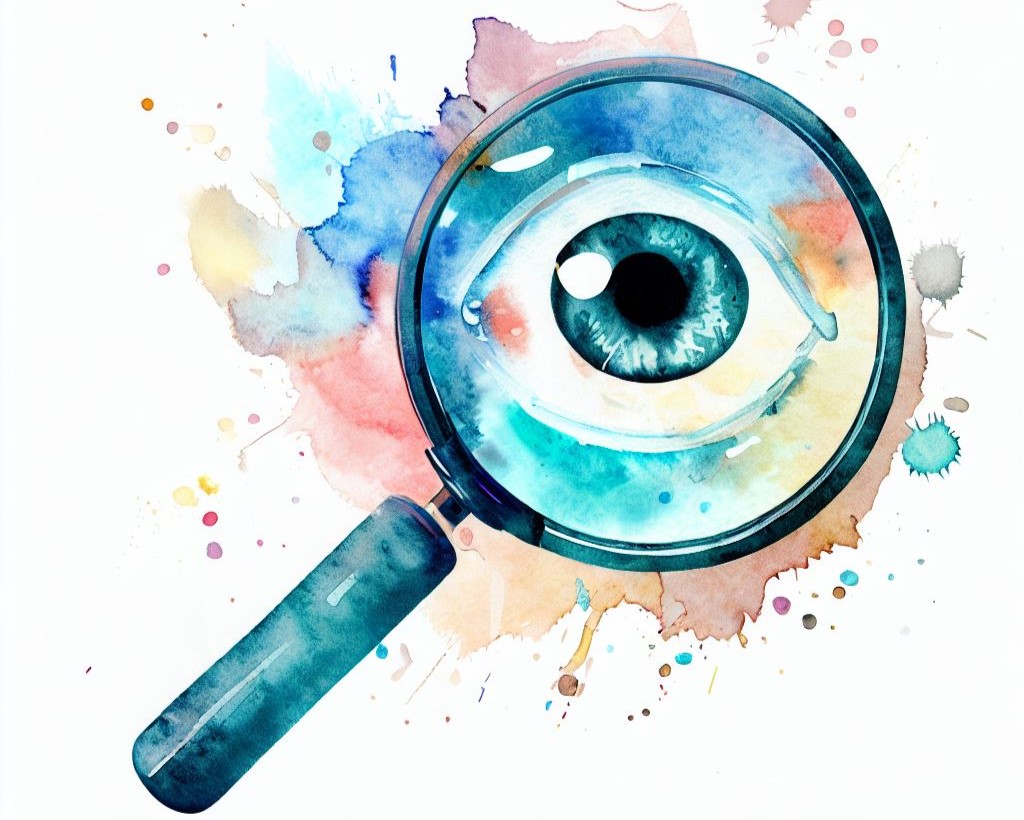In the personal development sphere, teachings are abundant about topics like mindfulness and self-love, yet observational skills are generally overlooked.
While mindfulness is touted for reducing stress, observational skills are equally vital in navigating various aspects of life, including career progression, building meaningful connections, and developing new skill sets.
Good observational skills make a tangible difference to your life, and they’re rather easy to improve. If you’re on a journey of personal growth, developing these skills is crucial. Here’s why.
Why are observational skills important?

Observational skills refer to your ability to perceive information within your external (and internal) environment.
Someone who is highly observant will absorb more information about your surroundings compared to someone who isn’t. They may pick up more social cues, or pay closer attention to details on a project or work assignment.
Ultimately, being highly observant translates to being more knowledgeable. This skill set allows you to experience life with more depth by noticing all the nuances of our world and other people.
This is why highly observant people generally appear to be intelligent because have soaked up more knowledge than the average person.
With that said, having good observational skills does so much more than helping you identify details about your environment. They’re an essential tool to identify what’s going on within your internal environment too, which leads to greater self-awareness and quicker personal growth.
Your observational skills help with:
Self-awareness
Observing your thoughts, feelings, and behaviors can lead to greater self-awareness. You are more likely to identify areas for improvement, work on your weaknesses, and build on your strengths.
Recognizing social cues
Being observant helps you pick up on subtle signals during social interactions including eye contact levels, body language, and receptivity. Picking up on social cues helps you navigate social interactions better.
Recognizing patterns
Being observant helps you notice certain painful trends or patterns in your life that tend to repeat themselves. This awareness allows you to break these patterns.
Identifying cause and effect
You will see when a certain action or behavior leads to a particular outcome, allowing you to identify and avoid detrimental behaviors.
Identifying details
You become better at noticing the little details in your job, work, and avocations, and ensuring you don’t miss important details.
Learning new skills
Being highly observant makes you better at learning new things. You’re more attentive to the process of learning, resulting in quicker learning.
Noticing changes
You become better at noticing subtle changes in your environment such as a dint in your car, if something’s out of place in your home, or if one of your pot plants needs water.
Reading between the lines
You become better at noticing incongruencies in what people are telling you, allowing you to piece together the truth rather than fall for a fib.
Solving problems
When you are highly observant, you gather more information about a situation which allows you to analyze it thoroughly. This can lead to more creative solutions and a better decision making process.
How to become more observant

You may not be highly observant, but you can awaken this dormant skill.
Being highly observant is arguably more useful in today’s world because there’s so much happening around us all the time. Knowledge is power, and if you’re on a personal growth journey, you should be soaking it up like a sponge.
Luckily for you, there’s always an enormous amount of information that you have access to, right now.
You’re just not tapping into it. So here are some ways that you can pick more of it up.
Here’s a resource to help you put on your observation cap:
Pay attention
Observation is a microscope.
Everything contains a bottomless pit of information, it’s just a matter of how hard you look.
Countless details are so often missed. We only see the surface level because we don’t give things our full attention and scrutiny.
Think about it this way.
A car salesman is going to have a different understanding of cars compared to your typical family man. They will know the design, the engine, the brand, the speed, the history, and the materials those cars are made from.
To the mechanic, the car is a work of art, the same way a building may be a work of art to an architect. The information is always there, but it requires knowledge and attention to develop an eye for something.
You probably haven’t looked at the details because you don’t really care. But if you were to look at the details of any given subject, whether it be your mental health or communication skills, you’re going to discover more depth to it.
Utilize your senses
All the information you pick up about the outside world passes through your senses. Therefore, if you’re not paying attention to them, you’re blocking out information.
When you pay attention to each sense and allow yourself to be present with the experience of that sense, that’s when you naturally start noticing more things around you.
Maybe it’s the birds chirping, the humming of the fridge, or the smell of Earth when walking in the woods. You are constantly surrounded by information, you’re simply not receiving it because you’re not giving your full attention to your senses.
Below are some ways that will bring you to your senses.
- What sensations do you feel right now?
- Do you notice your heartbeat?
- What emotions are you experiencing?
- What is the temperature right now?
- What sounds can you hear?
- What are some things you can see?
- What are the colors or tones like?
- Can you smell anything?
- Can you taste anything?
Slow down and start paying more attention to your senses daily. Every time you remember, bring it back and remind yourself to pay attention to the experience you’re having. The more you do this, the more mindful you will become.
Identify nonverbal communication
People are a big part of life. Being observant during social interactions can help you identify how people are feeling, navigate conversations better, and avoid potential conflicts.
Part of being highly observant is to not only listen with your ears but use your eyes to guide the conversation too.
When you are interacting with someone, you want to pay close attention to nonverbal signals because nonverbal signals tell you a lot about the person or the interaction. Things to look out for include:
- The person’s body language: Are they looking confident and powerful, or drooping their shoulders? Is their body facing you or away from you?
- Mannerisms: Is the person emphatic in their movements and behaviors, or not very animated?
- Vocal tonality: What is the person’s tone of voice like? Crisp and clear, or are they mumbling?
- Eye contact: Is the person’s eye contact strong, warm, cold, or fleeting?
- Facial expressions: Notice the microexpressions on the person’s face. What is it telling you?
Cultivate internal awareness
Your environment can be separated into 2 brackets – the external and the internal. A highly observant person is also aware of their internal environment, such as what they’re thinking and what they’re feeling.
To develop your observational skills, you need to work on your self-awareness. They are synonymous.
You need to cultivate an awareness of who you are the way you are, what you’re doing wrong, and how you could be improving.
Here are some things you should keep in mind about your internal environment.
- What emotions are you feeling?
- Are your thoughts positive, negative, or neutral?
- What can you improve upon?
- Where do you need the most healing?
- What painful belief systems are you holding onto?
- What reoccurring patterns can you identify in your life?
- What are your triggers?
- How do you act when under pressure?
- Do you tend to react or respond?
Be more inquisitive
Noticing new things about your environment is only half of the journey. If you want to develop your observational skills, you need to develop a curiosity about it.
If you’re curious about something, naturally you’re going to look into it and learn more about it. I was curious about spirituality so I crafted a life around it. I’ve explored it in much more depth than most people because curiosity drives me.
Likewise, I am curious about people and spend plenty of time people-watching. I like to see how people act, behave, and respond because I can use that information to step up my social game.
That’s why it’s important to not only follow your curiosity, but develop it too.
Whether you’re looking into history, economics, or your healing, wonder why things are the way they are.
Think about them.
Try to figure things out.
Be inquisitive.
The more you explore your curiosity, the more you’ll discover links between things that once appeared to have no connection.
Stop distracting yourself
Being highly observant requires focus.
If you’re constantly getting distracted, you’re never really giving anything much attention. This is why it’s important to slow down and learn to concentrate on one thing at a time (I know, it can be hard in our ADHD Tiktok culture).
If you’re engrossed in your work, really focus on the task at hand. Learn what you need to learn to get it done.
If you’re going for a walk in nature, focus on the sights, the sounds, the nature itself. Stop thinking so much and be present with the experience.
By concentrating on one thing at a time and devoting all of your attention to it, you’re bound to pick up a lot more information because your mind isn’t elsewhere.
Think critically
Put your critical thinking to the test by trying to apply logic to any given thing that you’re witnessing.
If you’re working within a business, think about how the business operates, and why they operate the way they do. If you’re looking at some beautiful architecture, think about how the building may have been built. Why did they design it like that? If you see some birds flying in a V shape in the sky, ask yourself why. If you’re not sure, research it, and see what you can learn.
You should always be trying to figure out the things you’re witnessing. If you see something, don’t just brush it off. Think about why that particular thing is the way it is. Think about questions you can ask yourself about that situation or sight, and answer them.
By thinking critically, you’re going to make a whole lot more sense out of the world, and start to see why things are the way they are.
Exercises to become more observant

Here we’re going to look at some practical exercises to build the muscle of observation.
People watching
Go to any public location and spend a few minutes picking out as many details as you can about the environment you’re in. You can bring a notebook and set a timer if you want.
Try to identify some things about that environment that have previously gone unnoticed.
If you’re sitting on a bench, observe what dynamics you see between people. If you’re in a café, pay attention to what’s happening around you. Do the employees look happy, nervous, or bored? Is the environment clean or dirty? What sorts of customers come in, and what do they use the space for?
If you devote your attention to picking up more of the smaller details about that environment, you will learn much more about it.
Make this a practice in every new environment you find yourself in, and take a couple of minutes to notice all the little things that brush by most people’s senses.
Inspecting
Pick an object that is in your immediate proximity. Maybe it’s your phone, a light, a mug, or a couch. Write down as many details as you can about that object until you run out of ideas.
You can write down details about the color, texture, size, shape, stains, and any information you can observe about the object.
If you designate all of your attention to one thing, there’s going to be plenty of information you’ve never noticed before.
Do this as often as you like with as many things as you like, to build a habit of noticing the tiny details.
Deep-diving
Pick an event, subject, or occurrence, and spend ten minutes researching it. Try to cram as much knowledge as you possibly can about the history, the reason, the idea, and anything that comes to mind.
If you choose lightning, research why lightning occurs. Research the different types of lightning, how quick the speed is, and what exactly happens when it hits something.
If you pick the topic of trauma, look at what creates trauma. Why people develop it, how people can heal it, different types of trauma, why people repress it.
Pick out one subject that you’re curious about and spend ten minutes researching as much as you possibly can about that given subject.
Do this with something different every day, and you’re very quickly going to become more knowledgeable, and more observant of the depth of information that everything has.

